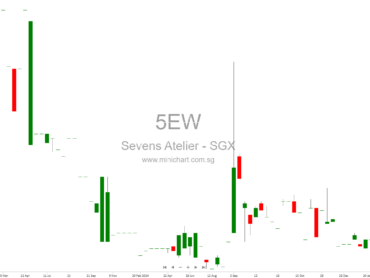Panasonic Holdings Financial Analysis: Net Profit Decline of 34%
Company Description
Panasonic Holdings Corporation is a multinational conglomerate based in Osaka, Japan. The company operates in five primary business segments: Lifestyle, Automotive, Connect, Industry, and Energy. It serves a global market across various sectors, including consumer electronics, automotive batteries, air quality and air-conditioning, and supply chain management software.
Industry Position and Market Share
Panasonic is a significant player in the electronics and electrical equipment industry. Its competitors include other major corporations such as Sony, Samsung, and LG. Panasonic holds a considerable market share in areas like automotive batteries and air-conditioning systems, leveraging its technological advancements and strong brand presence.
Revenue Streams and Customer Base
The company’s revenue streams are diverse, including sales from consumer electronics, automotive batteries, industrial automation systems, and energy solutions. Panasonic’s customer base spans both individual consumers and large corporations, with a robust supply chain that includes partnerships with companies like SUBARU CORPORATION and Mazda Motor Corporation.
Financial Statement Analysis
Income Statement
For the six months ended September 30, 2024, Panasonic reported a net sales increase of 3% to 4,251.3 billion yen. However, net profit attributable to stockholders decreased by 34% to 188.9 billion yen, largely due to decreased income tax benefits related to the liquidation of Panasonic Liquid Crystal Display Co., Ltd. This significant decline in net profit is a considerable point of concern.
Balance Sheet
As of September 30, 2024, total assets were 9,315.4 billion yen, a decrease from 9,411.2 billion yen as of March 31, 2024. The reduction is mainly due to exchange rate fluctuations and increased capital investments. Total liabilities slightly increased to 4,703.1 billion yen, while stockholders’ equity decreased to 4,439.0 billion yen.
Cash Flow Statement
Net cash provided by operating activities increased to 457.6 billion yen, mainly due to the monetization of IRA tax credits. However, net cash used in investing activities surged to 495.8 billion yen, primarily due to capital investments and the acquisition of One Network Enterprises, Inc. Free cash flow was negative at 38.2 billion yen.
Dividend Information
Panasonic has proposed an annual dividend of 40.00 yen per share for fiscal 2025, with an interim dividend of 20.00 yen payable on December 2, 2024.
Key Findings
Strengths
- Revenue growth in Lifestyle, Connect, and Industry segments.
- Increased operating profit by 12% to 216.0 billion yen.
- Strategic investments in automotive batteries and supply chain management software.
Risks
- Significant decline in net profit attributable to stockholders by 34%.
- Increased liabilities and reduced equity.
- Negative free cash flow due to high capital expenditures.
Special Activities
Panasonic has initiated several actions to improve profitability, including starting lithium-ion battery supply for heavy-duty EV trucks in the US and expanding production capacity in Japan through collaborations with SUBARU and Mazda. The acquisition of One Network Enterprises, Inc. is expected to enhance its supply chain management capabilities.
Investor Recommendations
If Holding the Stock
Investors currently holding Panasonic stock should consider maintaining their positions but closely monitor the company’s efforts to enhance profitability and manage costs effectively.
If Not Holding the Stock
Potential investors should approach with caution due to the significant decline in net profit and negative free cash flow. It may be wise to wait for visible improvements in profitability and financial stability before investing.
Disclaimer
This analysis is based on the financial report provided and should not be taken as financial advice. Investors are encouraged to conduct further research or consult with a financial advisor before making investment decisions.




